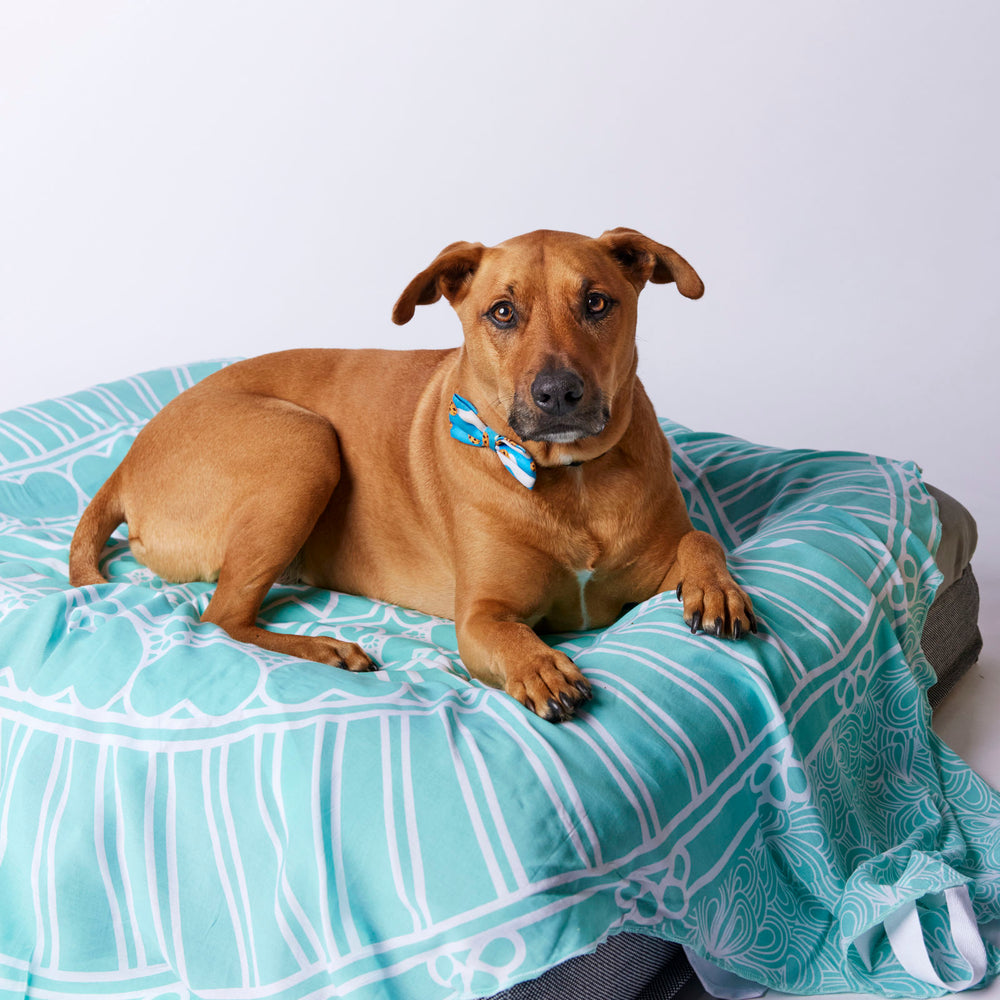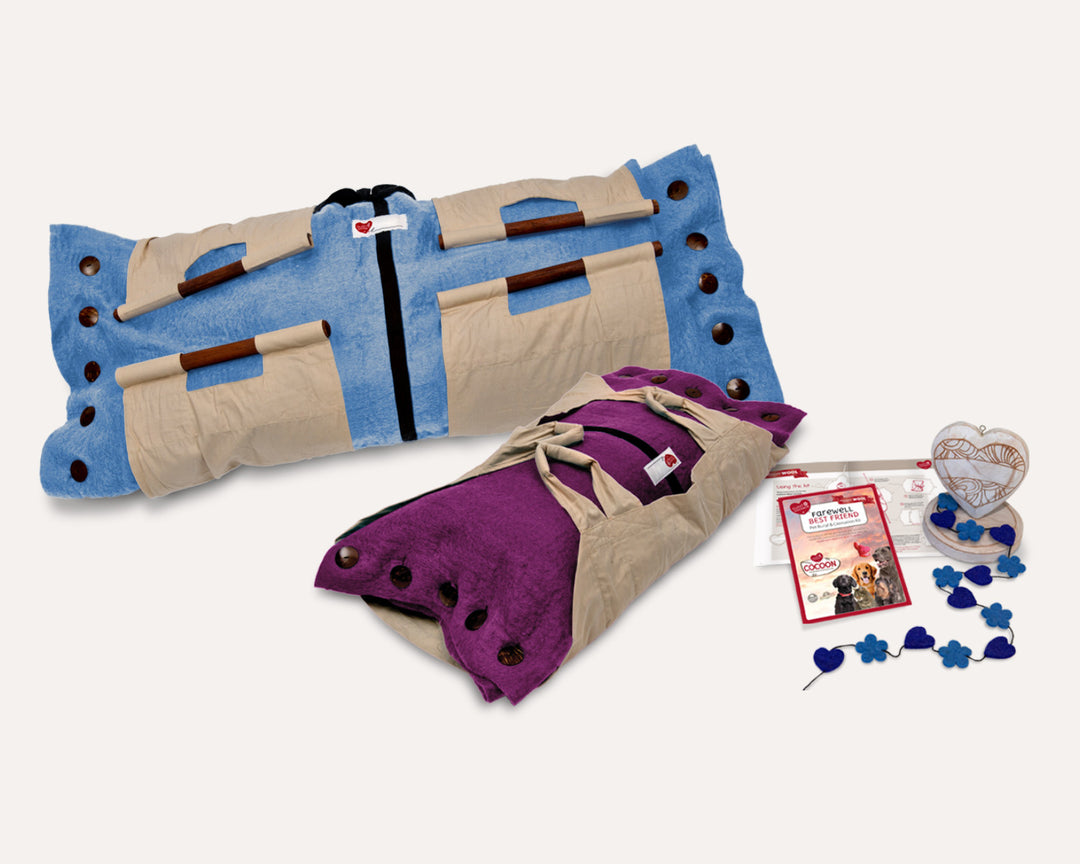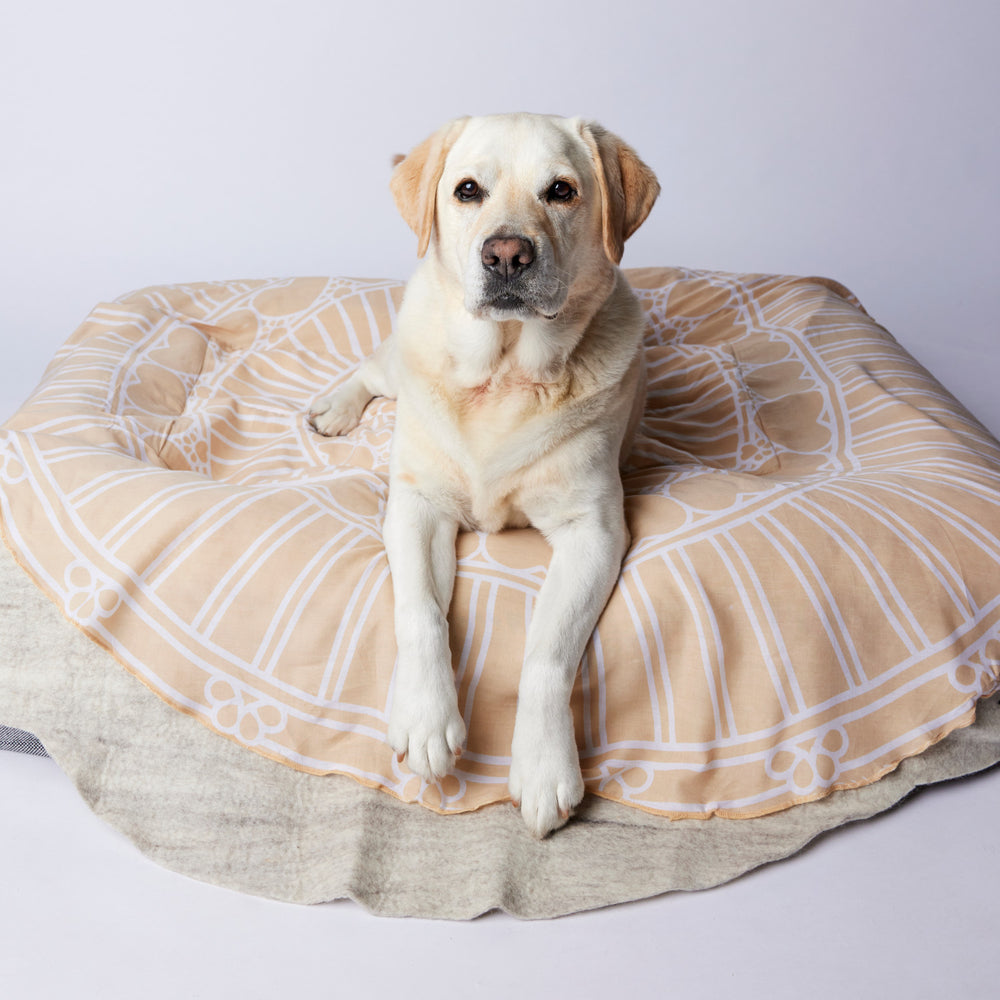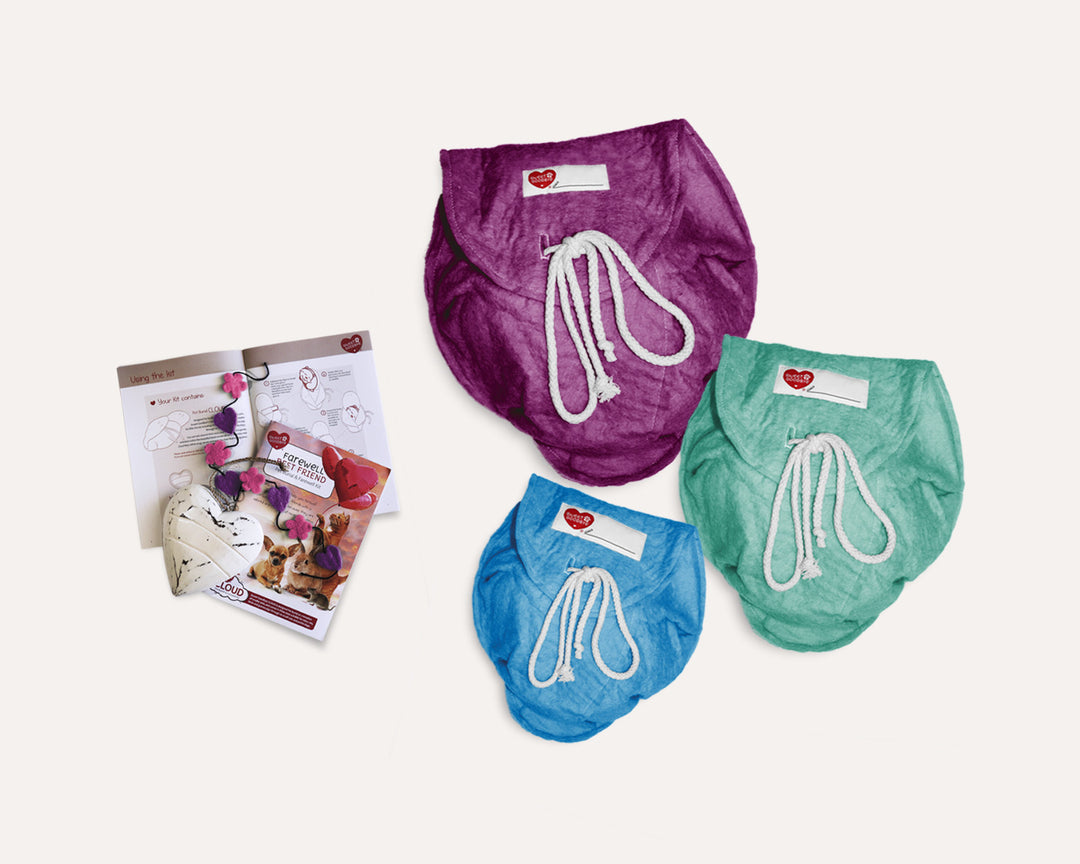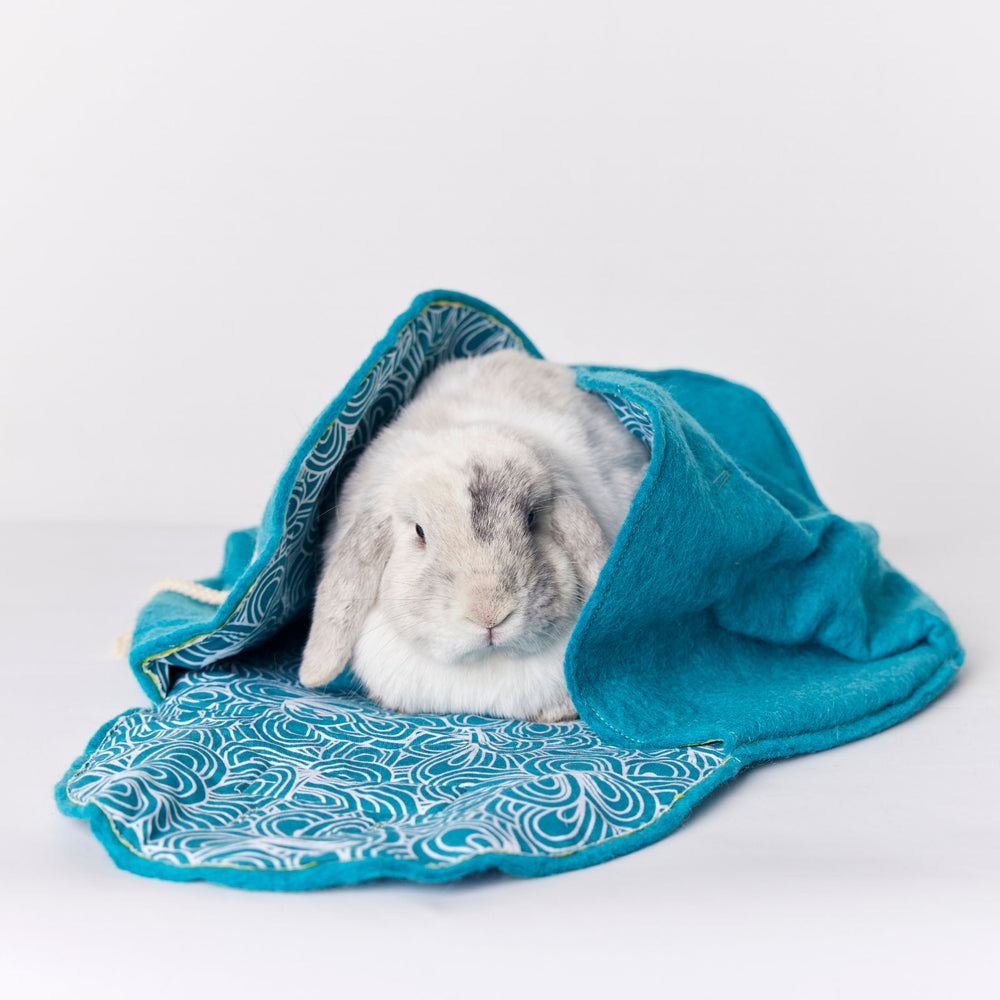Changing the Way We Say Goodbye
In this deeply heartfelt conversation, Natalie Venosi, founder of Sweet Goodbye, shares her reflections on the emotional journey of loving and losing a pet. With raw honesty, she explores the delicate balance between responsibility, grief, and the quiet wisdom our animal companions offer us in their short but powerful lifetimes.
Tell us what was your first pet and how did it shape your love for animals?
Natalie: My first pet was a Dalmatian called Roscoe, he was a family pet, but he was very much our first pet and unfortunately he had a lot of extra male hormones, so he was quite a challenging dominant dog. My dad was the only one who really had real control of him. I always wanted to just cuddle him. But I had to be careful around him because he was actually quite a dominant dog. But there are just photos and photos and photos of me with that dog because we were just glued together. It just taught me a level of companionship I'd never felt before. I think my childhood was interesting. We had a lot of upheavals. We moved from England to Australia when I was only four, so to settle down in our first house after moving so many times and then actually having a dog was my first grounding. That's probably the best way to describe it. He grounded me.

Can you share a time when an animal or maybe a pet taught you something about love or loss?
Natalie: This one was quite painful, but I had a horse. I used to do a lot of horse riding and there was an agistment Centre that decided to basically sell off all their horses and I was given one of those horses. I was still only maybe 14, 15 years old at the time. And I ended up moving her to Perth. And the difficulty was that I was so young, I was not able to give her the time, and I guess I didn't have the resources to spend all the time I wanted with her. I couldn't drive, it was a complex. It was very difficult for me to be her owner and be responsible for her. And when she ended up getting colic, and I remember sleeping out in her store with her at this agistment centre and sleeping overnight and I was just a kid and I wasn't getting any support from my parents, it was complicated.
When I got the phone call from the lady who owned the centre to tell me that she had died I just remember literally hitting my head against the wall . It was just the most devastating experience I can ever remember. And in all honesty, it's still with me and it's affected me deeply all my life. And it was mostly because I felt so inadequate and I know it wasn't my fault because I was just a child and that horse was given to me by my father, but my parents had split and it was complicated. So it was sort of handed over, but the support didn't come with it. I was given this great gift, which could have been any girl's greatest gift and biggest wish of their life, but I was completely incapable of taking care of her and the way I would've wanted to and how I would've as an adult.
I also was completely inadequate around being able to manage that responsibility emotionally. It was just such a huge burden to put on a child who was also in high school and dealing with all the other stuff that was going on, and at the same time feeling responsible for this most beautiful horse. Her name was Princess. And it's taken me up until now to still try and process and deal with that, and I've had to get a lot of help with that. That loss was very confronting, very bad timing, but also something that I guess put me in a position of being able to maybe survive through future loss, if that makes sense. It was a really tough lesson, something I would never have wanted to experience again. I've never been able to have a horse again because I basically don't feel I deserve it. I didn't. It's a sad story, but it's a really meaningful story because it's probably had a lot of impact on how I deal with the loss of pets and why I am so invested in trying to make that better for me and for others.
What inspired you to start Sweet Goodbye. Was there a particular moment that you went, this is what I need to do?
NataIie: I remember the moment I decided to start Sweet Goodbye. It was a form of an idea, not a commercial idea. It was more about an emotional support idea for myself that later obviously transitioned to being a support for others. And it was very much around the loss of Nikita. I was talking to my friend Made about how I was going to cope with losing another dog, my staffy was probably 12 around then. Before her I had lost Isla and I had lost Molly and I didn't feel that I had adequately taken care of them by way of saying goodbye. One of them, I wasn't even there when she was struck by a car, I was away. And that was really hard because I don't think I wasn't able to even take care of her. So that moment was, it was like a pre-knowledge that this was going to happen again, and I didn't want to go through the same experience and something had to change. That was the moment, and I reached out for help and I got it through that conversation with Made.

What gap or need were you hoping to fill for yourself and other pet owners?
Natalie: Well, I identified that the gap is that there is nothing practical on the market or even through the vets or the clinics that they was able to provide me with any level of comfort that I would be able to take care of my pet's remains, but also navigate my emotional grief around my pet being euthanised essentially. And it was very obvious to me that no one was really able to support that process. Everyone's very kind and everyone's very willing to share their sympathy, but there is no real practical or emotional support coming forth from anyone because it's just such a difficult subject and everyone understands the pain because most people have experienced it at some level or not, but there was just nothing. There's no tangible support that could be offered to make it easier or better or somewhat more dignified.
Why do you believe that rituals or ceremonies are important when saying goodbye to our pets?
Natalie: I think rituals and ceremonies are critical in saying goodbye to anybody. The difference between humans and animals is minimal with regards to losing physical beings that we're so used to having around us. So if we have to say goodbye to their physical being, we have to find ways to hold onto their spiritual being in a sense. And I think ceremony helps us do that. But more importantly, I think it helps us celebrate the time that we did have together. I think it helps us acknowledge the gift that they were, the intense love that existed, the satisfaction of the relationship that existed between us, and more importantly, a way to say goodbye, let them pass over without any regret such that their soul and the benefits of that relationship continue to exist even if the physical body isn't still with us.
Are there any particular rituals or gestures that you've seen families create or do that really moved you?
Natalie: I think watching my mum who's blind lay her guide dogs to rest in one of our products using the cocoon. And in fact one of them was actually our Balinese original Balinese fabrics and watching her have to part ways with a guide dog who is inherently such an incredible bonded relationship beyond what we can even understand with our pet relationships because her life was in those dogs, their paws, she was completely vulnerable and completely reliant on them in her everyday life. I think watching her do that and take photos and sort of video the process and capture it, even though she couldn't see that herself, but wanted to have that moment captured for us to use or for others to see, that was pretty profound. And knowing the difference it was for her going through that process with at least those two guide dogs compared to the previous guide dogs where she wasn't able to do that because we didn't have that product or that concept to offer her were just worlds apart. And that really moved me that I was able to make that grief and that loss for her a little bit less just by being able to have something to work with her hands in particular that she could feel and touch and very sensory. Her recovery was enormously improved from previous losses and that really moved me.
How do you feel that having a thoughtful goodbye helps with the grieving process?
Natalie: I've often thought about how a thoughtful goodbye helps with grieving. It's about the closure for one, I think that we need something to help set our minds to an end, but it's only an end of that particular journey. It's the end of being physically together so we can manage the grief. I think of losing that physical soul being around us, knowing that spiritually they're still here, we still hold them dear in our heart. And I think without doing some sort of ritual, we are not able to I guess acknowledge that. So it's an acknowledgement of that journey change because a change, I guess not an end. And it also helps us, I think comes to terms with the fact that we've provided the level of dignity they deserve. We've honored that intense love that we had and that we've essentially provided them with the same level of courtesy and love that we would afford to any other members of a family.
And by doing that, it provides closure in the sense of being of the regret. To me, it's been the regret that has held me back emotionally, and it's been the biggest burden on my sense of guilt, I suppose, or not being able to tolerate those losses as easily or to be able to come to terms with those losses. I think a lot of it is around regret, which is a very fearful response and feeling really responsible for and not being in control. So I think by being able to go through some sort of ritual or ceremony with both practical elements and emotional elements allows us to provide some sort of level of shift in that journey for them going forward, where they're going and for us to be able to go forward with them still with us spiritually, but not necessarily physically, but move forward without regret.
How do you hope sweet goodbye products help pet owners to do that practically or and or emotionally?
Natalie : Well, I think Sweet Goodbye products do work on both levels. They provide a practical support mechanism by literally being tangible products that you can touch and feel and you can wrap and shroud and you can bundle and swaddle and love and carry and handle after the pets have passed. I mean, how else can you possibly do that in a way that's loving and physical? Our products allow people to actually continue to have contact with their pets remains until such time as they're ready to separate and either go through burial or send them off for a cremation. And then just the practicality of being able to transport, carry and do all of that with dignity for their body, I think is incredibly important. So it does that on an emotional level. It ticks all the boxes around being able to provide the ceremony, the ritual, the closure, the cathartic therapy around just preparing the body in the time that you need to take to spend with the body, with your pet, talking to the pet writing notes, adorning them with garlands, whatever it is that everyone anyone chooses to do.

What has been the most rewarding moment for you since starting Sweet Goodbye?
Natalie: I would say every time I read a testimonial, and I don't read them every day because it's very emotional and I do struggle to hear everyone else's stories as well as thinking about my own. But I think reading testimonials is a consistent driver for me just to keep going, irrespective of how well or not the business itself is operating at a commercial level, and it's not meant to be a commercially brilliant business. It was developed specifically to help people and just be a sustainable business and hopefully provide some support to others that may need it. So for me, every time I read a testimonial, I just think that's why I do this. That's why this is a brilliant product. It is the best product on the market. It does exactly what we set out to do. I just wish more people knew about it. And I'm just so glad that the word continues to spread and the benefits of it at an emotional and a practical level are absolutely present in every single one of those testimonials.
This is an emotional business that you're running, and it can be intense. And when you read those testimonials they can be very sad. How do you navigate through that personally?
Natalie: Well, I think it's easier to navigate other people's emotional trauma when I know I'm helping make it a little easier. So it's not as traumatic for me because I know that they're getting some sort of help through our products. So while I'm saddened by their distress, I'm more distressed about the loss of their pet that I don't even know because the pets that touch me the most. So I feel sad for that loss, but I also know that that pet was just given the best goodbye that could possibly be given.
One of the classic stories with Dr. Katrina, our ambassador, she once told me that when she lost Toby the Wonderdog, that she had nothing at her disposal to wrap him or to send him away in a truck that came to collect him from the cremation centre. She has never, ever forgotten that deep sense of responsibility and regret that she wasn't able to take care of Toby the way that she could now. And now that she knows about our products, she said it sort of made her realise how much, what was missing in the industry, what was missing back then that is now available. And when they lost their last dog, Riley, her and her daughter sent me a message and basically said to me, I quote “you saved our lives”” . And I thought, wow, that's intense. I mean, that's a big deal for someone to say that.
You also helped Dr Katrina dealing with her grief in another way - can you tell me more?
Natalie: Katrina also said that her friend stopped phoning her after a week or two to check in on her. And she found that extremely difficult, that they didn't understand how much pain she was in to not continue to check in on her and ask how she was doing.
So I made it my job to do that with her, and I continued to do that for months and months and months to make sure she was okay. And I will do that with anyone I know personally, just to make sure they're okay, because it's so easily forgotten when it's a pet. And yet it stays with us just as long if not more deeply that loss than it does even when we've lost a family member or a close friend. And people tend to really check in on you around human loss, but they don't continue to check in on you around pet loss as much. And I think that's really necessary. So that's been really difficult to navigate, but I do take that responsibility quite seriously because I think it's really important if I can help it will make a difference. And I know it does, because the messages that I got back was she was just so grateful that someone still remembered that she was in a lot of pain she’d just lost a best friend, and it hurt, and it's going to hurt for a long time.
What would you say to someone saying goodbye to a pet ?
Natalie: I think the most important bit of advice I could give about saying goodbye to a pet is to acknowledge the love and the relationship that has been on both the spiritual and physical level and try and hold on to what you can of that even when the body passes. So it's not a denial that the pet is gone, it's more about looking at it in a different way. It's just looking at things differently, knowing that the physical being is no longer there, and that's really hard and it hurts. And you look and they're gone. And everywhere you normally see them, they're not there, and you can't walk at the beach on your own because it's not right. That's all real. And time will help some of that change as will potentially a new pet coming into the home. But the short term, I think, is to try and navigate away through the connection of that spiritual relationship that you had that will always exist in your heart, in your memories, in your photos, in your videos, and what you had was real. And we live for the now, not for before and not for the future. So we just have to take it day by day and hold onto what we have and let them go onto their next journey and be grateful for what we had, the time that we had spent with them and what they gifted us with. Because I think that's really all they do is just gift and give and gift and give, and we just do our best to keep them comfortable through the time that we have them in our responsibility, I guess.
Lastly, If you could go back to past Natalie what would advise would you offer her?
Natalie: I would tell little Natalie that you are not always responsible for every being that's within your family circle, be it pet, animal or human, and not to take that responsibility so seriously that it becomes a massive burden. But I think with pets in particular, we are responsible for them. We need to ask for help and we need to find a way to acknowledge them as the gift that they are and be satisfied that we can honour them in their passing because they've done what they needed to do while they were with us and they are here to make us better beings. And I think they pass on when they've completed that role and their life with us is short, and I think perhaps they don't need to be around for as long as we do because they're already such good beings. Their souls are already so clean and calm and connected to earth that they are not these very complex human beings that we are.
Natalie reminds us that while the loss of a pet can be devastating, it's also an opportunity to honour their legacy with grace and gratitude. Through Sweeet Goodbye, she helps others navigate this sacred farewell, turning grief into a tribute to the quiet, soulful beings who make us better simply by loving us.





